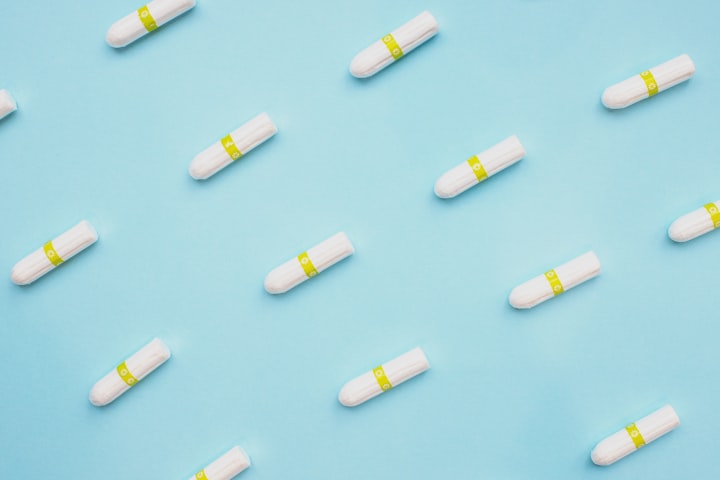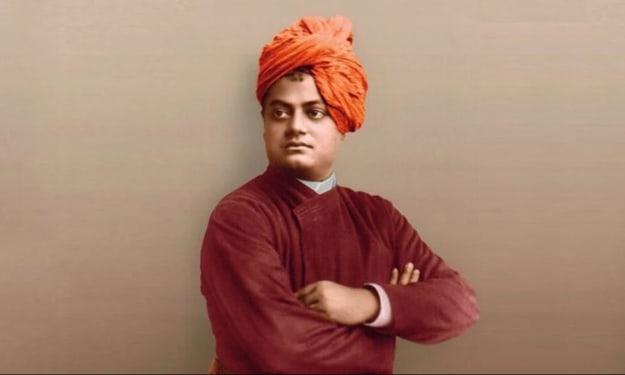Coping With Period Pain
Making peace with my periods after years of agony

If you have ever experienced severe period pain, then you know first-hand how debilitating it can be.
For some lucky few, the monthly bleed comes and goes with relative ease, and cramps might come once in a blue moon, if at all. For others, every month brings a jackhammer-like thudding in the pubic region, heavy bleeding, back and leg pain, nausea, and diarrhea.
I spent around three decades struggling with these horrendous kinds of menstrual cramps, and it was miserable. I came to dread each month, counting down the days until “the curse” would return to blight my entire existence for seven days (or more, sometimes).
I would plan my life around it, schedule work shifts and holidays to try to avoid the times when my period might turn up. This could, at times, be a bit of a guessing game, as my cycle wasn’t always regular. Wherever possible, I tried to avoid having to be anywhere during the first one to four days of my period, knowing that I would likely be spending them in a fetal position on my bed and cuddling a heat-pack, in between urgent dashes to the loo.
I remember having some pain on the occasion of my very first period (aged 12, or 13 — I don’t remember exactly), but it was manageable. I recall thinking, “well, I suppose that’s not so bad.”
By the time my first truly crippling bout of period pain arrived at age 15, I was cursing my (literally) bloody uterus through my tears and, when the cramps were at their worst, puke.
What makes periods painful?
The medical term for painful periods is dysmenorrhea, and it is caused when the womb contracts in order to shed its lining. As the uterine walls contract the blood vessels compress, which temporarily cuts off the blood, and therefore, the oxygen supply to the womb. This in turn leads to pain in the uterine tissue.
At the same time, the hormone prostaglandin is being produced, which triggers further muscle contractions in the uterus. It is believed that those who experience period pain have a surplus of prostaglandin, which leads to very strong contractions.
There are also some medical conditions that also cause painful periods, such as endometriosis, Pelvic Inflammatory Disease (PID), and fibroid tumors. If you regularly suffer from severe menstrual pain, you should see your doctor or gynecologist as soon as possible to eliminate any such medical conditions, and to ask about ways to alleviate your menstrual misery.
If you are someone who suffers from severe cramping, then you know first-hand how ineffectual standard over-the-counter pain relief is against dysmenorrhea. Paracetamol and ibuprofen don’t make much of a dent in the pain.
Pharmacy-medicines such as Feminax, Naprogesic, and Aleve are designed especially for menstrual cramps, and though the former is essentially just a brand of ibuprofen, the latter two both contain Naproxen, a stronger NSAID (non-steroidal anti-inflammatory drug).
Then there are prescription-only medications that can only be prescribed by your doctor or gynecologist, such as Mefanemic acid and Tranexamic acid (more on these later). If you want to avoid the pharmaceutical avenues, there are even herbal and homeopathic remedies such as Cyclease that claim to ease the pain of period cramps.
At the end of the day, finding a source of pain relief really comes down to trying each medication until you find the one that works best for you.
My brief respite from period pain
I rode the over-the-counter period pain relief roundabout for many years with little to no success. Finally, in my early 30s, I tried the combined oral contraceptive pill, and for the first time in my life, I not only had pain-free periods but a regular and reliable menstrual cycle. It was a whole new, happier world for me, and I was kicking myself for not seeing a doctor and going on the Pill earlier. (As Julia Roberts said in Pretty Woman, “I’m a safety girl”, and I always insisted my partners wear condoms).
Alas, my holiday from period pain didn’t last for long. Within five years of going on the Pill, I was diagnosed with breast cancer and, as mine was a hormone receptor-positive cancer, I was (and still am) no longer able to take any kind of hormone-based contraceptive or dysmenorrhea treatment.
Though I had been told that I would very likely experience a “medical menopause” due to chemotherapy, my period persisted through the first few months of chemo treatment. It was hellish, with such excessive bleeding that even a large maxi-pad and regular changing of super-plus sized tampons every 20-30 minutes did not prevent me from seeping right through my clothing.
The cramping was the worst I had ever experienced. It was the last thing I needed when I was already dealing with the chemo.
At our next appointment, I told my oncologist how miserable I was and I practically begged for a hysterectomy. I didn’t care about anything else but ridding myself of those awful periods. Having known a brief respite during my years on the Pill, the thought of the next 20-odd years with no relief was too much to take. If I couldn’t have a hysterectomy, I told the oncologist, I would start taking the oral contraceptive again — hormone receptors be damned.
Fortunately, though, the oncologist reassured me that there were other, less drastic ways of managing the pain, and referred me to the hospital’s gynecology team.

Finding a solution and finally making peace with my period
After some scans and investigations, the gynecologist prescribed me two medications to help manage my heavy, painful periods; Mefanemic acid and Tranexamic acid.
Mefanemic acid is a NSAID that reduces the amount of prostaglandin produced in the body, thereby lessening the uterine cramping and thus, the pain. Tranexamic acid is used to treat excessive blood loss, and this can not only help with heavy periods but also slightly lessens the severity of the uterine contractions.
Using these medications brought me a much lighter flow and less pain during my subsequent period, and I can’t begin to describe the relief. But then, lo and behold, my period suddenly vanished, a result of the cytotoxic chemicals built up in my system from the chemotherapy.
Despite all the years of pain and misery it had caused me, I found myself mourning the loss of my period very acutely.
Though I had never wanted children and was always unlikely to be able to conceive anyway (due to congenital and endocrine issues), I found myself lamenting the sudden end of my fertility, such as it was.
Not only that, but I discovered to my great surprise that I actually missed that monthly shedding and the more enjoyable aspects I associated with it: connectedness to the tides, the moon, and nature; a cyclical shedding and the resulting sense of rebirth, like a snake shedding its skin to emerge shiny and bright once more.
The sudden cessation of this process that had been such an integral part of my life for decades was jarring. With prescription medication, I had finally found a way to make peace with my period. I hadn’t been ready to say goodbye to it just yet.
My period returned like magic a few months after my chemo and radiotherapy finished, and I cried when I saw that blood again. But this time, it was not the tears associated with pain and copious amounts of blood loss, nor the tears of frustration at how my plans for the coming week would be disrupted. They were, I realized, tears of joy at seeing once more an old friend that I’d thought I’d lost for good, just when we had found a way to resolve our long-standing differences.
Nowadays, though my cycle can go a little haywire from time to time, I have a good relationship with my period. I don’t even have to take the medications very often. I don’t know if that is due to post-cancer changes to my body chemistry, a natural physiological process such as peri-menopause, or even the psycho-physical effect of my altered relationship with my menstrual cycle. Whatever the cause, I am grateful for it, and I no longer feel any hate nor any fear towards my period.
©️ Jupiter Grant 2021
******
If you regularly experience severe menstrual cramping and/or excessive bleeding, speak to your doctor or gynecologist. Don’t let embarrassment, stigma, or a sense of frustrated resignation keep you in a state of monthly misery. Ask for help.
About the Creator
Jupiter Grant
Writer, Poet, Narrator, Audiobook Producer, Freelancer.
As you may have guessed, Jupiter Grant is my nom de plume. I’m a purveyor of fiction, poetry, pop culture, and whatever else takes my fancy on any given day.






Comments
There are no comments for this story
Be the first to respond and start the conversation.